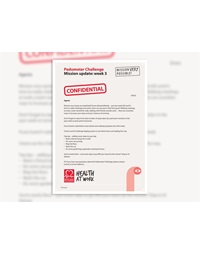Search
There are 5517 result(s) for jump rope for heart
-
12 things that really shouldn’t count as your 5-a-day
It's not always easy to know what counts as your 5-a-day. Get armed with the facts with our definitive guide. Find out more.
-
Is the 5:2 diet a good way to lose weight?
Our expert explains how safe is the 5:2 diet, and which is the best way to lose weight steadily and gradually. Find out more.
-
Average ambulance waits for heart attacks and strokes rise to 42 minutes
Average ambulance response times for heart attacks and strokes were 42 minutes in October, latest NHS England data reveals.
-
Funding for personalised stroke and heart disease treatments
Personalised treatments for strokes and heart disease is closer thanks to ongoing BHF research funding at the University of Reading.
-
PUBLICATION
Health at Work pedometer challenge - email template 5Other, 1 page, published on 20/12/2012
The Health at Work pedometer challenge emails are ready for you to circulate to your team captains before, during and after your pedometer challenge.
This publication is only available to download or view online
View online Download (157.6 KB) -
Treatments for heart valve disease
Get our quick guide to why you might have heart valve replacement, what it involves and how long it will last.
-
RESEARCH
Searching for the causes of congenital heart diseaseUniversity of Oxford | Dr Duncan Sparrow
Congenital heart disease (CHD) is the most common human birth defect, affecting around one in 100 babies. Heart defects can occur because of faulty genes inherited from the parents, or they can be caused by environmental factors in the womb...
-
RESEARCH
A three dimensional sat-nav for the heartImperial College London | Professor Peter Kohl
The heart is amazingly complex, yet astonishingly robust in its response to changing conditions, from exercise to aging, disease and even transplantation to another body. This ability to adapt over milliseconds to years is based on cell lev...
-
RESEARCH
Looking for inflammation in early life that sets the stage for heart diseaseUniversity College London | Professor John E Deanfield
Inflammation can cause changes to arteries and blood that increase the risk of heart and circulatory diseases in later life. Some teenagers and young adults already show signs of these changes, but why this happens isn’t fully understood. ...
-
RESEARCH
Are fat cells important for repairing heart muscle after a heart attack?University of Oxford | Dr Mathilda Mommersteeg
During a heart attack, blood vessels supplying the heart muscle become blocked, starving the heart of oxygen. The affected heart muscle tissue dies, and the damaged tissue is replaced by scar tissue that doesn’t function like healthy heart ...


